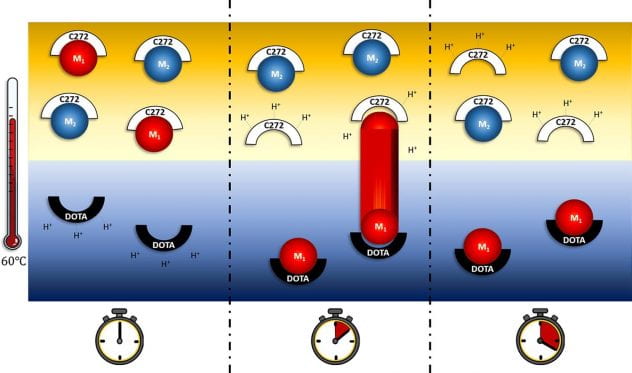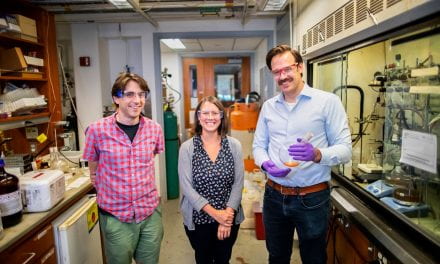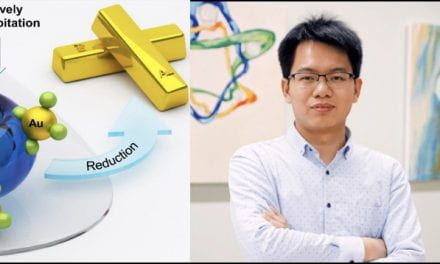Congratulations to CSSM members Jessica Jackson and Jenifer Shafer on their recent manuscript entitled, “Leveraging Slow DOTA f-element Complexation Kinetics to Enable Separations by Kinetic Design”, which may be found at this link.
The design of metal-concerned solvent extraction systems frequently leverages thermodynamically derived differences in selectivity. An alternative approach, leveraging kinetic control, has been considered much less seriously. Our recent manuscript describing DOTA (1,4,7,10-tetraazacyclododecane-1,4,7,10-tetraacetic acid) complexation kinetics across the lanthanide series shows the observed rate constant steadily increases across the series, with some non-monotonic behavior observed at terbium and thulium. To leverage the kinetic differences of DOTA with the lanthanides across the series, kinetically based separations must be utilized. Results showed, in general, separation between metals is better during early phase contact, and diminishes under longer contact times. Under all conditions, separations are better than would be predicted based on a thermodynamic basis. This report suggests that while slowly complexing ligands classically used for biological applications may not be appropriate for thermodynamically designed metal separations, their use for kinetically based systems may be appropriate and enable a new design basis for f-element separations.






